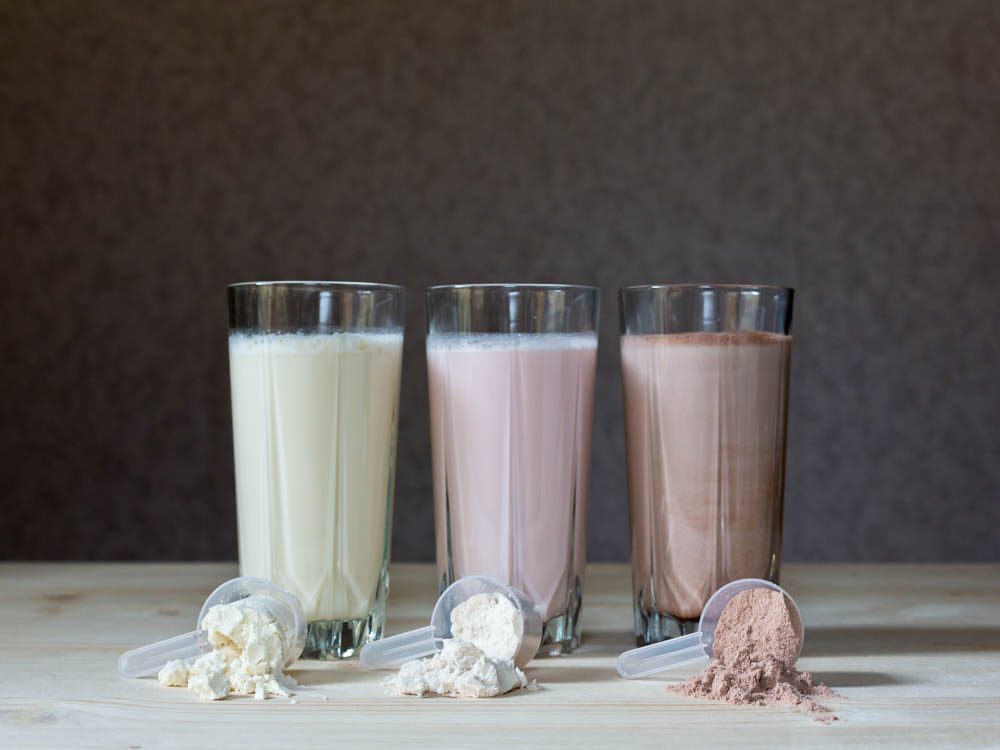
Fit protein in before bed
Prone to snacking before you snooze? Stock your fridge with protein shakes. Florida State University researchers found that men who had a shake with 30 grams of protein before bed experienced a higher resting energy expenditure (how much energy, or calories, the body burns at rest) the next morning compared to those who ate nothing before bed. An added bonus: Protein may also aid muscle repair overnight. The more muscle mass you have, the more calories you burn at rest.
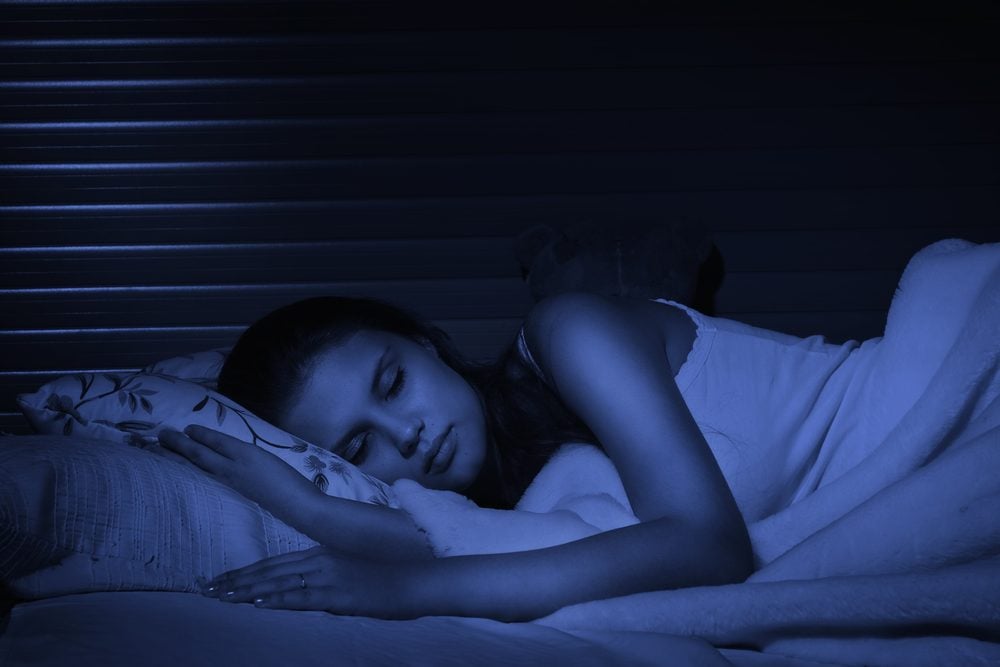
Sleep in complete darkness
Photo: Shutterstock
If you live in an area that gets exposed to outdoor lights, consider blackout curtains or shades for your bedroom. Turn around any glowing clocks and keep the TV off. When you’re in complete darkness, your body produces the hormone melatonin, which not only makes you feel sleepy, but can aid in the production of calorie-burning brown fat, according to a study published in the Journal of Pineal Research.
Read more about the Hidden Health Risks of Nighttime Lights.
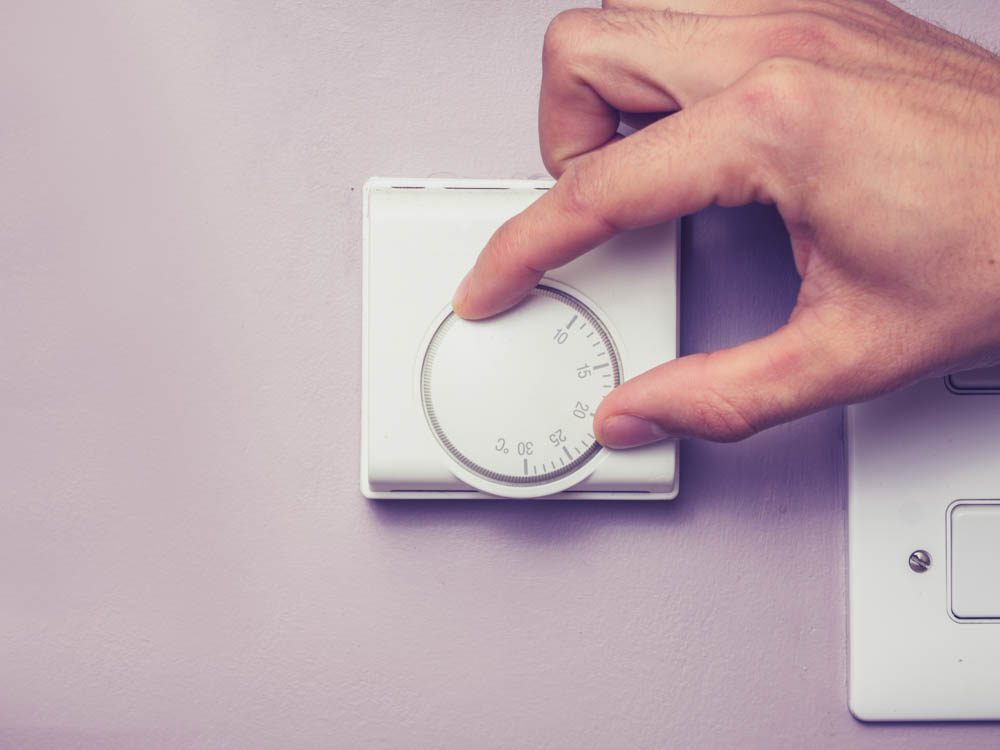
Turn down the thermostat
Sleeping in cooler temperatures could help you burn more calories overnight. People who slept in rooms cooled to 19 degrees burned more than 7 per cent more calories while they dozed than sleepers in warmer rooms, reported a study in the journal Diabetes. A likely reason: Their bodies worked harder to raise core temperature to a stable 37 degrees, which torches calories. While 7 per cent doesn’t sound like much, it could help you burn an extra 100 calories over 24 sleeping hours. When you’re watching the scale like a hawk, every bit helps.
Check out 12 More Weight Loss Secrets you’ll want to know!
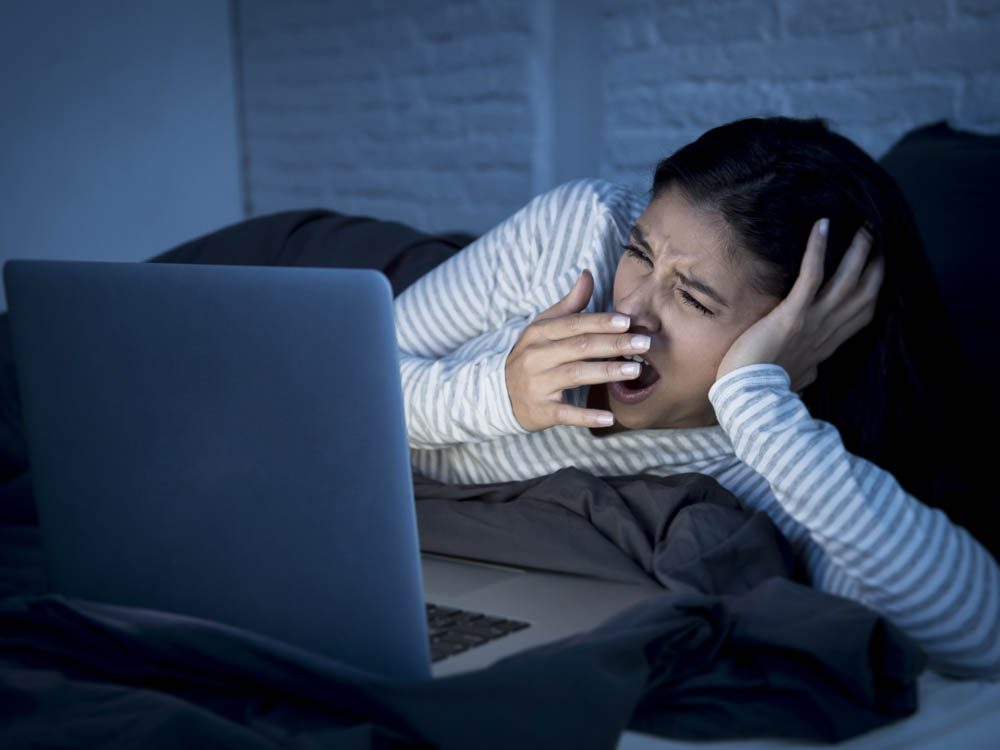
Shut off all screens
Before you get ready for bed, shut down all bedroom electronics. Manchester University researchers found that short-wavelength blue light, which is emitted by tablets and smartphones, disrupts the body’s production of melatonin and, as a result, could disrupt metabolism. Set yourself a cut-off for before-bed television time, too. Singapore researchers linked long television screen time with higher levels of triglycerides (associated with metabolic syndrome and diabetes) and lower adiponectin (a protein involved in regulating glucose levels and fatty acid breakdown).
Need to catch more zzz’s? Here are 7 Surprising Ways to Get More Sleep!
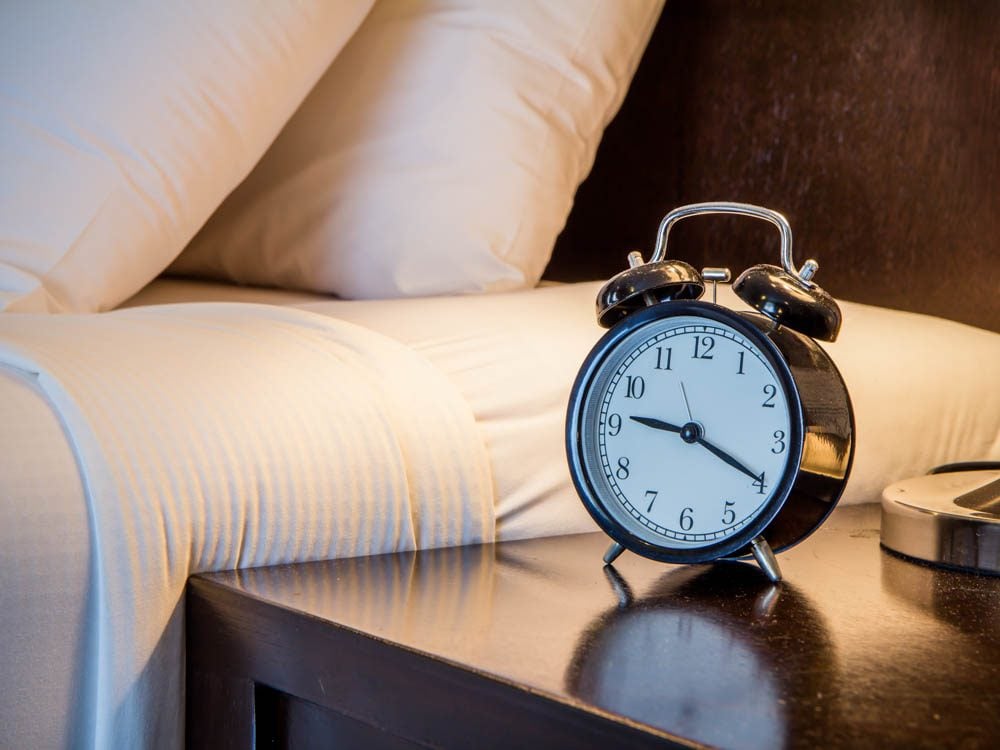
Give yourself a bedtime
You know you need to get enough sleep, but somehow a busy schedule—or a new TV season—always gets in the way of your beauty rest. Here’s motivation to hit the sack on time: By committing to a healthy number of snoozing hours per night (the Mayo Clinic recommends 7 to 8 hours), you burn more calories throughout the day—even when you’re inactive. An American Journal of Clinical Nutrition study found that well-rested people’s resting energy expenditure was 5 per cent higher than that of their tired peers. They also burned 20 per cent more calories after eating than sleep skimpers. Related research found that lack of sleep makes fat cells less sensitive to insulin, a metabolic change linked with obesity.